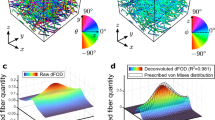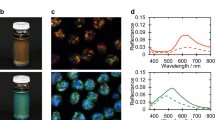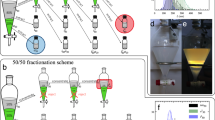Abstract
VISCACELLE (cellulose sheet manufactured by Messrs. Courtaulds by the viscose process and used extensively as a wrapping material) is birefringent. There seems little doubt that this property is due to a net orientation of the long cellulose molecules caused by the unidirectional tension to which the sheet is subjected while being spun. Under this tension, the molecules may be expected to arrange themselves so that their length directions are parallel or nearly parallel to the direction of tension. This explanation is supported by the fact that the direction of tension (revealed on cut sheets by parallel streaks) is the slow direction of vibration.
This is a preview of subscription content, access via your institution
Access options
Subscribe to this journal
Receive 51 print issues and online access
$199.00 per year
only $3.90 per issue
Buy this article
- Purchase on Springer Link
- Instant access to full article PDF
Prices may be subject to local taxes which are calculated during checkout
Similar content being viewed by others
Author information
Authors and Affiliations
Rights and permissions
About this article
Cite this article
HARTSHORNE, N. ‘Viscacelle’ as a Material for making Compensating Plates and Wedges for the Polarising Microscope. Nature 135, 269–270 (1935). https://doi.org/10.1038/135269b0
Issue Date:
DOI: https://doi.org/10.1038/135269b0
This article is cited by
-
Neuere polarisationsoptische Arbeiten auf dem Gebiete der Biologie
Protoplasma (1940)
Comments
By submitting a comment you agree to abide by our Terms and Community Guidelines. If you find something abusive or that does not comply with our terms or guidelines please flag it as inappropriate.



